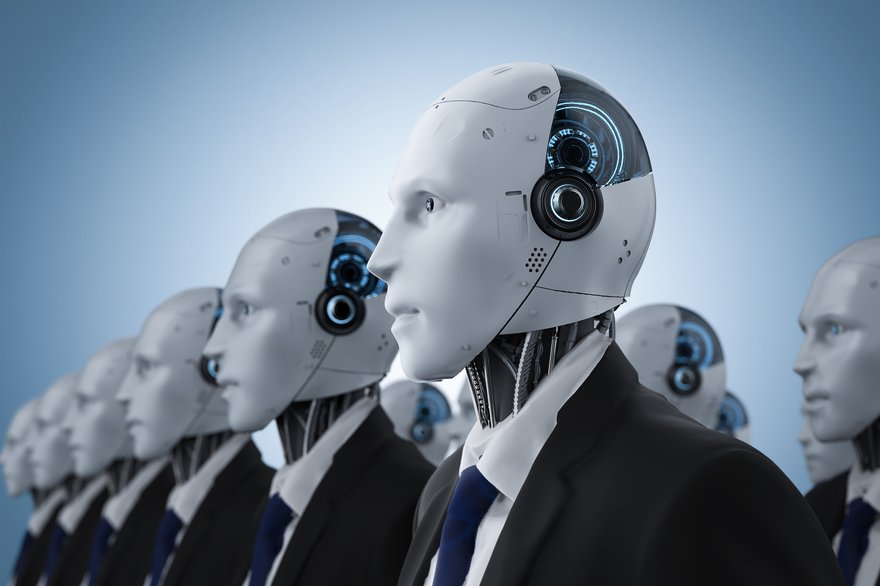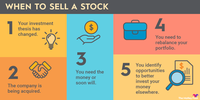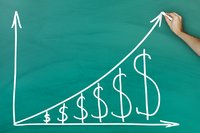Have you ever wondered who owns OpenAI? You wouldn't be the first to ask that question, but it's surprisingly difficult to find an answer.
OpenAI started a widespread boom in artificial intelligence (AI) in November 2022. The release of the ChatGPT chatbot, based on a powerful large language model (LLM), set new standards for what AI could do. Before ChatGPT, many saw AI as a mysterious technology trick. After some hands-on experience with ChatGPT, skepticism has evolved into a mix of wonder, fear, and enthusiasm about a computer system's ability to mimic human intelligence in many ways.

Related AI tools like the DALL-E image creation system and the Sora video generator put more wind in OpenAI's sails. One year later, OpenAI partners such as Microsoft (MSFT 2.14%) and Nvidia (NVDA 3.26%) had added billions of dollars to their market caps, largely thanks to their involvement with the ChatGPT phenomenon.
However, OpenAI is not a publicly traded company. The driving force behind the AI frenzy that started in 2022 is a very private business managed as a "capped-profit" organization.
So, who owns OpenAI? Well, it's complicated. Let's figure it out together.
OpenAI's goals
OpenAI's ambitious goals in AI research
OpenAI was founded in December 2015. It was a nonprofit company at first, aiming to "advance digital intelligence in the way that is most likely to benefit humanity as a whole, unconstrained by a need to generate financial return."
The absence of financial goals, such as creating value for shareholders, allowed OpenAI to pursue its world-changing goals without distractions.
Who owns it?
Who is the owner of OpenAI?
Early financial backers included venture capital giant Peter Thiel, Tesla (TSLA 0.22%) CEO Elon Musk, India-based technology consulting expert Infosys (OTC:INF.Y), the startup incubator Y Combinator, the cloud-computing pioneers of Amazon (AMZN 0.75%) Web Services (AWS), LinkedIn founder Reid Hoffman, and current CEO Sam Altman. Their first round of funding added up to $1 billion, and OpenAI never made it clear who contributed how much.
The structure changed in 2018 when the nonprofit created a capped-profit unit called OpenAI LP. The new division is allowed to generate a financial profit but with strict limits. The maximum return on the first round of investments was set at 100 times, with lower return caps expected for subsequent investors. Any bottom-line profit in excess of these targets will be reinvested in accelerating the research mission rather than lining the pockets of OpenAI investors.
After this shift, any mention of the bare-bones "OpenAI" name refers to the for-profit arm. The original group, known as OpenAI Nonprofit, still runs the show, setting targets and strategy with a six-member board of directors as of April 2024. The for-profit entity doesn't have a separate board.
Importantly, only a minority of the board members can hold any financial interest in OpenAI and its operations. Employees and investors sign legal agreements to put OpenAI's research mission first, "even at the expense of some or all of their financial stake." And if the organization faces questions about where the interests of investors may conflict with the AI research mission, only board members without financial stakes can vote on what happens next.
Largest shareholders
Who are OpenAI's largest shareholders?
OpenAI, as a private company with a unique "capped-profit" structure, does not disclose detailed breakdowns of its ownership shares. However, some of its major investors are widely known, with a light sprinkling of investment details provided in OpenAI's official blog posts. The exact details of their financial involvement and ownership stakes are not public knowledge.
Individuals
- Altman co-founded and co-funded OpenAI but has made it clear that he no longer holds any financial interest in the company.
- Greg Brockman was the chief technical officer at digital payments expert Stripe as that company grew from four to 250 employees. He left Stripe to co-found OpenAI, participating in the initial $1 billion funding round. It's unclear whether he kept a stake or let it go.
- Hoffman was also part of the first OpenAI funding round. The LinkedIn co-founder holds several board seats, including a Microsoft seat. Again, his financial ties to OpenAI in 2024 are not public knowledge.
- Thiel is an experienced venture capitalist and co-founder of household-name technology companies. Like Brockman, Altman, and Hoffman, he took part in OpenAI's original funding. His current stake is not known, but investors of his caliber tend to let their winners run. In other words, if any of the AI expert's initial funding providers still hold on to their investment almost a decade later, it's probably Thiel.
Institutional investors
- Microsoft invested $1 billion in OpenAI in 2019 and committed another $10 billion to the AI innovator in 2023. The partnership deepened along the way, as Microsoft added OpenAI's tools to its Azure cloud-computing service, to its Bing search engine, and to its Edge browser.
- Amazon Web Services was among the original OpenAI funding sources. AWS was quick to set up virtual "gyms" where OpenAI developers and clients could run their AI solutions through a gauntlet of test runs.
- Infosys was also on board with the OpenAI journey from day one. Vishal Sikka, the company's CEO at the time, was inspired by Altman's ambition to create artificial general intelligence (AGI) to benefit humanity.
- Big-name venture capital funds Tiger Global, Sequoia Capital, Founders Fund, Thrive, K2 Global, and Andreessen Horowitz put their wallets together in April 2023, pouring a total of $300 million into OpenAI. The round was not a technology partnership but a simple financial investment with the purpose of pocketing large gains over time.
Board members
Who is on the board of directors for OpenAI Nonprofit?
The OpenAI Nonprofit organization has shared a few specific details about its operation, including a complete list of active board members. The original OpenAI Nonprofit board was revamped with the introduction of OpenAI LP and then again when Altman returned to OpenAI after a brief pause. The board doubled its size from three members to six in March 2024.
OpenAI does not disclose the board members' financial interests in the company, but a majority of the members must have no ownership of the organization at any given time.
- Chairman Bret Taylor is a tech industry veteran with C-suite and boardroom stints at giants including Shopify (SHOP 2.69%), Salesforce (CRM 0.61%), Twitter (now X), and Facebook (now Meta Platforms (META 1.95%)).
- Larry Summers is president emeritus of Harvard University. He also served as the treasury secretary for former President Clinton, director of the National Economic Council for former President Obama, and chief economist of the World Bank.
- Adam D'Angelo was the chief technical officer of Facebook from 2006-08. He co-founded the question-and-answer forum Quora in 2009 and still serves as the private company's CEO.
- Dr. Sue Desmond-Hellmann has a long history of top-level leadership in organizations such as the Bill & Melinda Gates Foundation, Genentech (DNA 5.14%), Procter and Gamble (PG 0.03%), and the University of California, San Francisco (UCSF).
- Nicole Seligman is a lawyer, a member of several corporate boards, and a former Sony (NASDAQ:SONY) executive.
- Fidji Simo is the CEO and chair of Instacart (CART 2.39%).
D'Angelo joined the board at the launch of OpenAI LP in March 2019. Summers and Taylor entered the boardroom in November 2023. Simo, Seligman, and Desmond-Hellman were added in early 2024.
Related investing topics
How to invest
How to invest in OpenAI
OpenAI is a private company with no immediate plans to sell stock on the public market. The semi-nonprofit company structure doesn't look tailor-made for supporting a public market entry; co-founder Altman often says that OpenAI will remain private under his watch.
In other words, there is no way to make a direct investment in OpenAI today, unless you're a deep-pocketed venture capitalist or technology giant with partnership plans. Accredited investors with million-dollar assets and the appropriate credentials can use services from Forge Global (FRGE -0.77%) and others to get that ball rolling.
The closest thing to an OpenAI investment for us ordinary retail investors is to buy shares of Microsoft. No one has closer ties to OpenAI than this software legend.
Chip designer Nvidia is another tech giant with exposure to OpenAI and the ChatGPT phenomenon. The company benefits when other businesses build high-powered computer systems to train and operate modern AI engines. Buying Nvidia shares gives you a nuts-and-bolts investment in one of OpenAI's most important infrastructure providers.
You can also go with an exchange-traded fund (ETF) focused on the AI space. This is far from a direct OpenAI bet but is a play on the long-term rise of AI systems and related technologies. Popular options include:
FAQ
Who owns OpenAI: FAQ
Who are the owners of OpenAI?
OpenAI was originally funded by nine investors, including six individuals and three organizations. Others have joined the OpenAI project in later investment rounds, led by Microsoft's building of a significant ownership stake in the for-profit OpenAI LP unit.
Does OpenAI belong to Microsoft?
No. Microsoft has invested more than $11 billion in OpenAI and holds a significant financial interest in the for-profit organization, but it's less than a controlling majority stake. The fiercely independent OpenAI Nonprofit's board of directors still calls the shots. To make a long story short, the software giant doesn't own OpenAI Nonprofit or OpenAI LP.
Who is controlling OpenAI?
The OpenAI operation you see in public is technically called OpenAI LP. This for-profit business is managed by the OpenAI Nonprofit organization, creating a hybrid between charity and business called a "capped-profit" company. The nonprofit group's six-member board of directors directs OpenAI LP, passing profits down to early investors and the overarching research mission.
Is ChatGPT owned by OpenAI?
Yes, ChatGPT is a large language model chatbot developed and owned by OpenAI. It's one of several powerful AI tools created by the organization. OpenAI has a unique structure where a non-profit organization oversees a for-profit arm, and ChatGPT operates within that profit-generating side of the company.





































































































































































































































